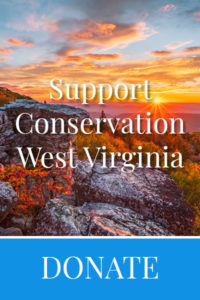SB 171: No Good Deed Goes Unpunished
Unfortunately, the West Virginia Senate has adopted the wholly undemocratic practice of advancing bills at the opening of the annual legislative session without public notice, referral to committee or debate. Senate Bill 171, passed unanimously on January 12, 2024, is the most recent of these. It is now with the House of Delegates. If it becomes law, SB 171 will usurp and prevent local land use planning and zoning authorities from regulating industrial operations which fall under the broad state definition of “agriculture.”
The bill appears to be a thinly disguised attempt by the Senate to override strong public and local government opposition to the relocation of a timber fumigation plant near Baker in Hardy County. The facility, proposed in 2023 by Allegheny Wood Products (“Allegheny”), would treat or fumigate timber harvested elsewhere and intended for shipment overseas with methyl bromide, a highly toxic chemical.
Though the Division of Air Quality was prepared to issue an air pollution control permit to Allegheny, construction of the plant ultimately required re-zoning approval from the Hardy County Board of Zoning Appeals. However, public reaction to the proposed plant was fierce, and over 150 County residents attended a May 4, 2023, public hearing. Facing intense public opposition and a zoning appeal board that signaled it would deny the rezoning request, Allegheny withdrew its application. But that’s not where it ended.
Because SB 171 was passed by the Senate with no debate, we don’t know what levers were pulled behind the scenes or by whom. But somebody is opposed to local control of agricultural issues, including the use of pesticides, and influential Senators are listening. The bill would never have been included in the fast-track package rammed through at the beginning of the session without the complicity of Senate Republican leadership, led by Senate President Craig Blair (Berkeley). Other sponsors of the bill were Patricia Rucker (Jefferson/Berkeley), Charles Trump (Berkeley/Morgan) and Mike Oliverio (Marion/Monongalia).
“Agriculture” is broadly defined under state law to include operations or land used in the production of woodland products.[1] SB 171 would expressly prohibit county commissions from taking any action that would interfere with a permissible use of approved pesticides, herbicides or insecticides and would exclude agricultural lands or operations from local regulation. If enacted, the bill would have a far-reaching effect and would further diminish local control over land use in favor of legislators in Charleston.
One feature of SB 171 is that any ordinance, rule, regulation, license requirement, or other authorization previously adopted by a county commission that contravenes or is stricter than any state law, rule, or regulation regarding agricultural operations would be revoked. This is certain to create uncertainty and frustration in local government.
If the bill passes the House and becomes law, Allegheny will be back with its proposed wood fumigation operation and the citizens of Hardy County won’t be able to do much about it. Despite the West Virginia Senate’s disdain for democracy, the democratic process can work for us if citizens speak up and object. CWV opposes this legislation. Let your delegates know how you feel.
UPDATE February 13, 2024
SB 171 was introduced in the House of Delegates on January 25, 2024, and was referred to the Committee on Governmental Organizations. When the bill was reported out of committee, two amendments were offered on the House floor and both were defeated. By a vote of 84 to 16 the House passed this bill on February 13, 2024. Here is the vote count. Now county control over any proposed facility loosely based on “agriculture”, like the proposed application of a hazardous, toxic pesticide on wood products in Hardy County destined for export, will be permanently impaired. This is short-sighted legislation.
[1] West Virginia Code § 19-19-2 as amended.

